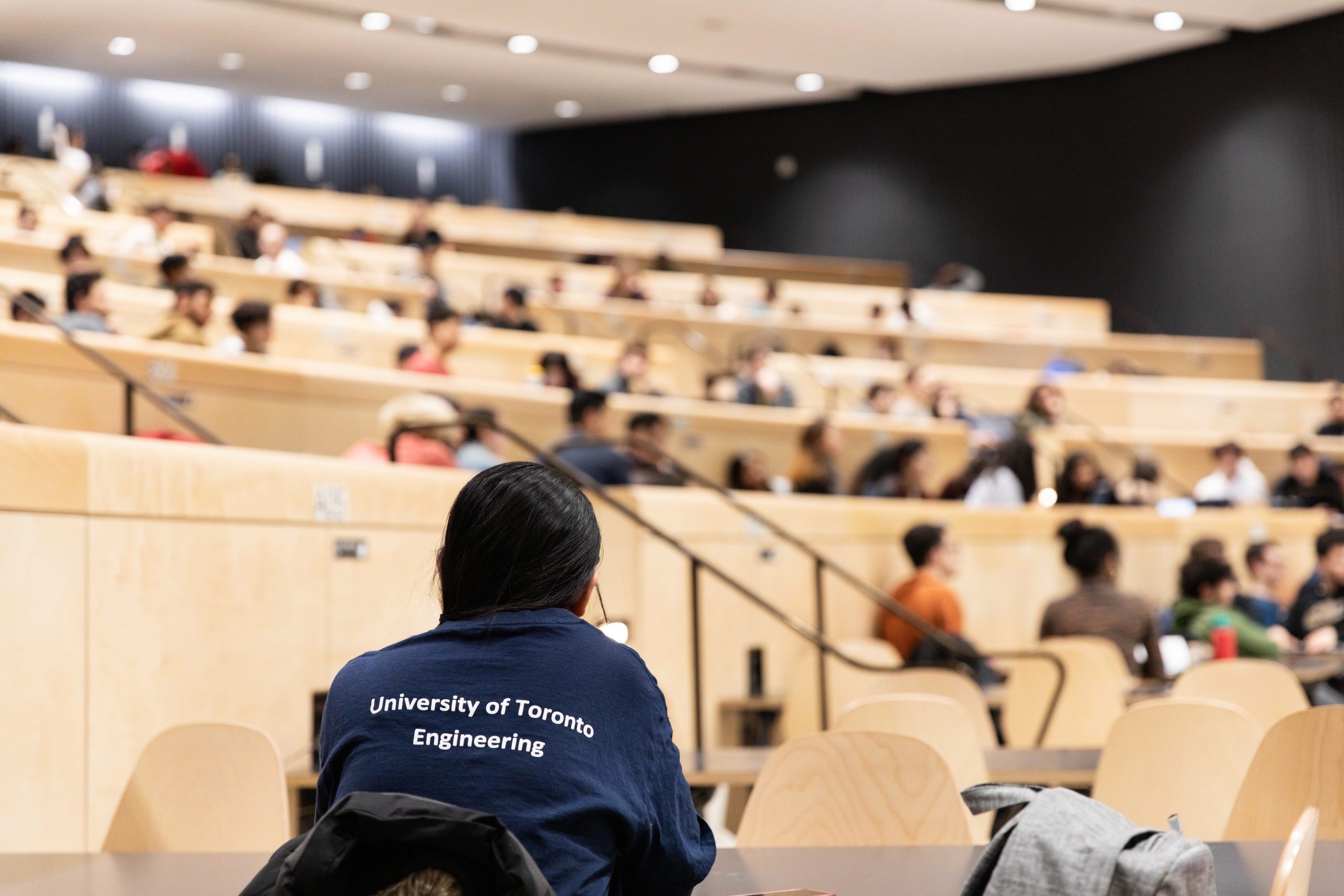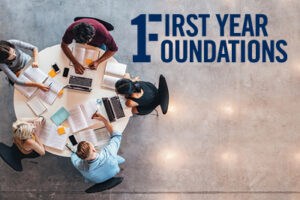Preparing for University
On this page:
You are about to embark on an incredible journey of learning and exploration.
Please review this section closely to ensure you’re prepared for the Fall Term.
summer opportunities
Starting university is a major life transition – even the most academically well-prepared students (like you!) may find that adjusting to the new learning environment, course workload, freedom and responsibilities of university life may involve some challenges.
To support your transition we have created two streams of optional programming you can take over the summer to help you prepare for this Fall. These programs are completely optional but are a great resource to get a head start.
First Year Foundations
These optional programs help you to meet fellow classmates, future professors and teaching assistants, while learning more about the social and academic aspects of university.
Much of this programming is free; those with a cost are indicated.
- Academic Orientation: Free information modules and Q&A sessions starting in June (online)
- Success 101: Free full-day workshops in August (in-person)
- Engineering Study Skills: Free workshops in August (online)
- Fabrication & Engineering Design 101 ($): Learn to use the U of T Fabrication Facility while guided by first-year instructors in this two-week workshop in August (in-person)

This experience allowed me to cement the basics that would go on to help me better understand concepts taught during first year. It also helped me meet new people within and outside of my program.
Paige McFarlane
EngSci Year 4, engSuccess mentor
Early Start Courses
We are pleased to offer APS162: Calculus for Engineers I and APS164: Introductory Chemistry from a Materials Perspective online this summer. By taking one of these summer courses, you will earn credit toward your first year of studies, allowing you to reduce your courseload for the Fall or take an elective.
APS162 during the summer replaces MAT186 in the Fall, while APS164 replaces APS110. Completion of APS162 or APS164 in the summer will count toward your Fall Term average.
Students who enjoy working independently, feel confident in their high school fundamentals, and have time to devote to a course during the summer are encouraged to enrol. If you find the course is not a good fit for you, you may cancel your registration without academic penalty by July 29, 2025.
- APS162 and APS164 Dates: July 2 – August 22, 2025 (online)
- Eligibility: Students in TrackOne or any Core 8 program may take one Early Start course. Not available to Engineering Science students.
- Cost & Registration: Course fees are included in your 2025–2026 full-time tuition; no additional cost to new students.
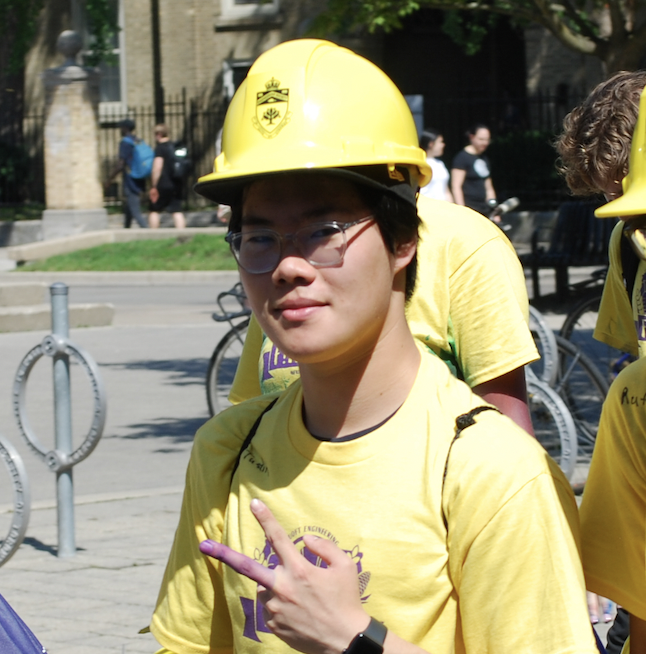
Taking APS162/APS164 is very beneficial. You get an open spot either in Fall or Winter semester to underload or take an elective of choice (see CS and HSS electives online)
Justin Fang
ECE Year 2 GEARS mentor
First-Year E-Buddy program
The First-Year E-Buddy program is an optional peer-mentorship program for international students that supports your transition into Fall Term. All international students will be invited to participate in sessions starting in June. This summer program will be offered online and will include informative workshops, group academic advising and informal meetups.
E-Buddies are upper-year students who can answer questions about life at U of T Engineering. They’re here to help you before any of your classes start and can help you connect with fellow students.
Through the program, you will have opportunities to:
- Explore your cultural and global identities as a student and recognize how culture can influence behaviour and expectations in academic and personal contexts.
- Apply frameworks of intercultural communication to how you can successfully collaborate in teams.
- Create interculture competencies and global learning goals to better engage with global and local communities.

Learning from the experiences of upper-year students gave me practical advice on managing courses, making friends, and navigating university challenges. Their insights helped me feel more prepared and confident before arriving on campus.
Mahmoud Rashid
MSE Year 3 E-Buddy mentor
things to know
ACORN (Accessible Campus Online Resource Network) is U of T’s online student services platform. Use ACORN this summer to:
- Update your contact information (including emergency details)
- Use the financial planning tool
- View your course timetable
- View your financial invoice
Every member of the U of T community needs a digital credential called a UTORid. With your UTORid, you can access online services like email (UTmail+), course content on the University's Learning Management System (Quercus), library resources, Microsoft365 applications, WiFi on campus, and more.
First, you'll need to convert your JOINid to a UTORid before classes begin. Then, you'll need to pick up your actual TCard when you arrive on campus.
Your TCard is your permanent U of T student card. It includes your UTORid and student number, and serves as photo identification for academic purposes. It's also your key to accessing campus activities, services, facilities, libraries and more.
You'll need your TCard daily to access spaces and to identify yourself. Funds can be loaded onto your TCard for U of T Bookstore purchases as well as food and printing purchases at participating locations on campus.
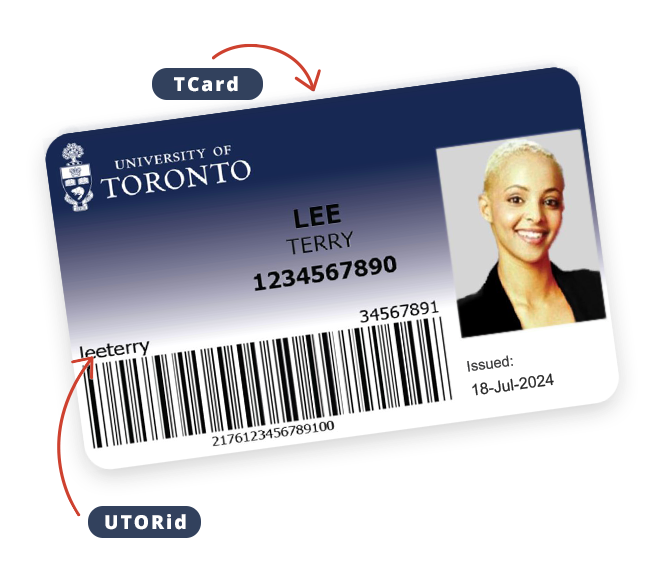
As a new student starting in Fall 2025, you can submit your TCard documentation and photo online starting May 1, 2025, and plan to pick up your TCard at the TCard Office. You will need to make sure you have your identity and legal status identification documents with you.
You will be permitted to use one of the following calculator models for some of your tests and exams.
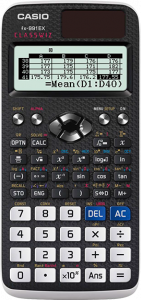
Casio
Casio FX-991 (any suffix is acceptable)

Sharp
Sharp EL-W516 (any suffix is acceptable)

Sharp
Sharp EL-520 (any suffix is acceptable)
U of T uses email as the official means of communication with students. For this reason, it is important the email address you have listed in ACORN is a University-issued email account (called UTMail+). Once you have activated your UTORid, you will be able to create your own U of T email address.
It is your responsibility to keep your email account current and check it daily. You will receive important emails from professors and staff about changes to your schedule or classrooms, upcoming events, marks, exam schedules and more.
For those of you who plan to live in a student residence, U of T Housing coordinates residence placements and can answer questions you might have. This same office is a great resource for off-campus housing options and advice for those of you looking to find non-residence options in the community.
Residence placements will be sent via email throughout June, July, and August. After you receive your residence placement, you will pay a deposit to secure your spot in residence. At that time, you can also indicate residence-specific preferences (e.g. building, room type, meal plan, etc.) if applicable to the residence where you are placed.
Specific room information will be sent to you after you have received your residence placement and indicated your residence-specific preferences.
A large number of U of T Engineering students are commuters. If you plan to commute, check out this useful resource for tips to make the most of your time.
While every student wants to ensure they have their textbooks in time for the Fall, you are not expected to have them for the first day of classes. On the first day of each course lecture, your professor will let you know which textbooks / digital materials you need. More details about textbooks and how to buy course materials will be sent to you later this summer.
If you plan to live in a campus residence, you will receive information about meal plans from your residence’s office. Meal plans are also available to students who commute.
Your meal plan can be used at a variety of locations across campus allowing you to use your meal plan as it suits you best.
The university recommends that you acquire a personal computer to support your learning needs. A suitable system can be either Windows- or macOS-based, and we recommend a laptop for additional flexibility. While there are no specific computers recommended, it is advisable that you choose a device that meets at least the minimum specifications provided at uofteng.ca/techspecs.
The Engineering Computing Facility (ECF) provides in-person computer lab access when on campus, and is available 24/7 through remote access to computers and software within U of T Engineering. When you have paid your minimum required fees or deferred your fees, you will automatically receive an ECF account.
You can rent a locker in one of several locations across U of T Engineering. Rentals start in September and are primarily managed by the Engineering Society.
Key Academic Dates
2025
AUGUST 12
Last day to pay or defer your fees
LATE AUGUST
Move into residence, if applicable
AUGUST 25
Orientation begins
SEPTEMBER 2
Fall classes begin
OCTOBER 27 – NOVEMBER 2
Fall study break (no classes)
DECEMBER 3
Fall classes end
DECEMBER 5 – 22
Final examination period
DECEMBER 24
U of T closed for winter break
2026
JANUARY 5
Winter classes begin
FEBRUARY 16 – 22
Winter study break (no classes)
APRIL 7
Winter classes end
APRIL 9 – 30
Final examination period
